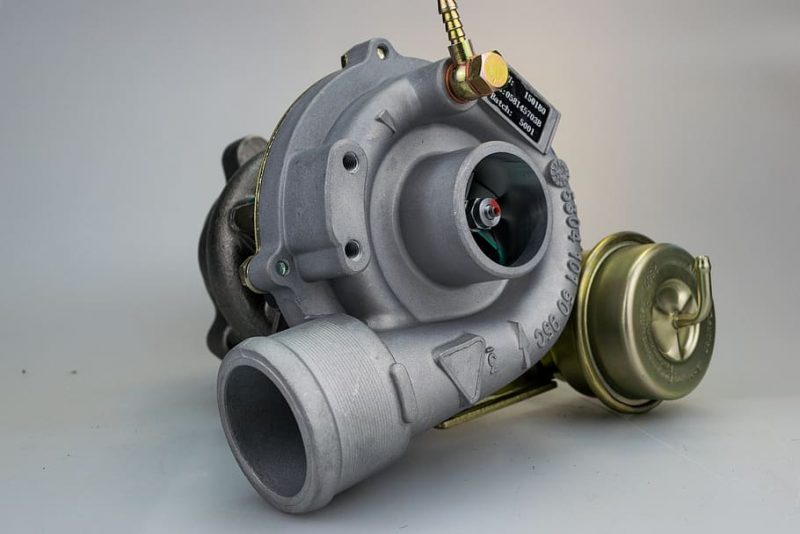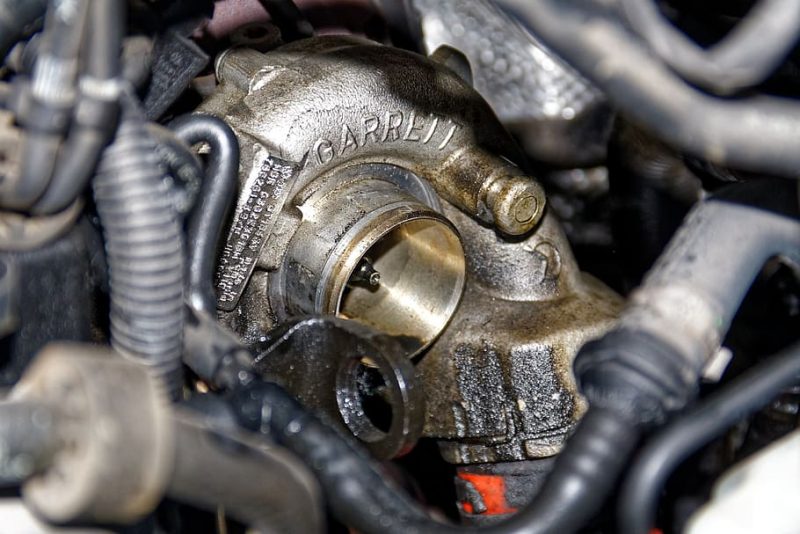Contents
– How does the turbo operate?
– Oil leak in the turbo: what are the symptoms?
– Causes of turbo oil leaks and solutions
– Maintenance is necessary to avoid turbo oil leaks
A turbo oil leak can cause a lot of problems. To avoid your vehicle breaking down, you must first learn to identify the root of the problem and then apply the proper solution in each case.
How does the turbo operate?
The turbo is a mechanical device that is used in internal combustion engines and combustion engines. It increases the engine’s volumetric power. The turbo’s principle is to make a turbine work by rejecting the exhaust gas. The turbine’s job is to send a set amount of air to be compressed and then transmitted to the engine’s combustion chamber, which will increase the engine’s power.
Good to know: The turbo must be lubricated with engine oil to perform correctly. This oil is circulated through a circuit in the turbo’s bearings.
What are the signs of an oil leak in the turbo?
An oil leak in the turbocharger is caused by a mechanical problem that can damage the turbocharger. A lack of oil leads to this type of malfunction.
The oil leakage occurs at the seals. It is often the result of poor filtration or a failure of the air evacuation system.
Caution: If you still have an oil leak in the turbo, it is best to contact a mechanic immediately, who will identify the exact source of the leak and quickly do everything possible to repair it.
What causes turbo oil leaks, and how to fix them?

There are several mechanical causes for an oil leak at the turbo level:
– Clogged compressor: clean the dirty elements of the compressor and replace the air and oil filters.
– Leakage between the engine and the turbine: the damaged seals must be replaced.
– Damaged turbo: The turbo must be replaced when the cause of the problem has been determined.
– Silted or coked turbo bearing: when the temperature is too high, the oil condenses and becomes coke. The oil and air filters, as well as the turbo, must all be replaced.
– Clogged air filter: while cleaning the filter may be beneficial, it is much better to replace it.
– Clogged oil drain or crankcase ventilation: it is necessary to clean the filthy part or better to replace it.
– Clogged exhaust or intake manifold: the obstruction should be removed by careful cleaning.
Note: Too high an oil temperature or too much oil in the crankcase can cause oil to leak from the turbo.
Maintenance is necessary to prevent turbo oil leaks.
It is essential to check the condition of the turbo regularly. To do this, remove the intake or exhaust manifolds to check the appearance of the compressor and the turbine wheels. Also, contain the absence of metallic particles entering the turbo body because a foreign object may damage the turbo.
Important: To avoid any faults, a qualified mechanic must overhaul the turbo periodically.
Read more:
– When Can a Leak Detector Be Used on a Head Gasket?
– How to Change Your Brake Fluid;
– How to Verify Braking Noises;
– How Do You Restore Car Leather;
– Are Puncture Proof Tires Any Good?
– How to Repair a Crack on a Dashboard;
– 5 Common Causes of Hydraulic Power Steering Failure;
– How to Solve a Power Steering Problem;
– 5 Steps to Install a Car Window Film;

